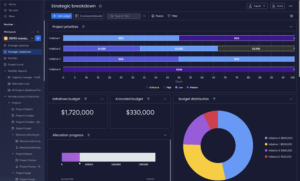Edge Computing: Bringing Cloud Capabilities Closer to the Source
January 1, 2025
Security and compliance in the cloud are essential considerations for businesses moving their operations to cloud environments. Ensuring data security in the cloud involves implementing robust encryption methods to protect sensitive information from unauthorized access. It’s crucial to understand and adhere to industry-specific compliance standards, such as GDPR or HIPAA, which dictate how data should be handled and protected.
Regular security assessments and audits help identify vulnerabilities and ensure that cloud services meet the required compliance standards. Implementing multi-factor authentication and access controls further strengthens cloud security by limiting access to authorized users only.
Additionally, businesses should choose cloud providers with strong security certifications and track records of maintaining high security and compliance standards. Data backup and disaster recovery plans are vital to safeguard against data loss and ensure business continuity.
Continuous monitoring and updating of security protocols help defend against evolving threats and maintain compliance with changing regulations. Collaboration with legal and IT experts can assist in navigating complex compliance requirements and ensuring full adherence.
Ultimately, prioritizing security and compliance in the cloud protects valuable data and supports business integrity in an increasingly digital world.
Keep reading

Atlassian is named a Leader in ITSM automation by Gartner

How to save time with employee onboarding and which role could Jira play in this area?

Strategy execution with monday.com: key insights from our webinar